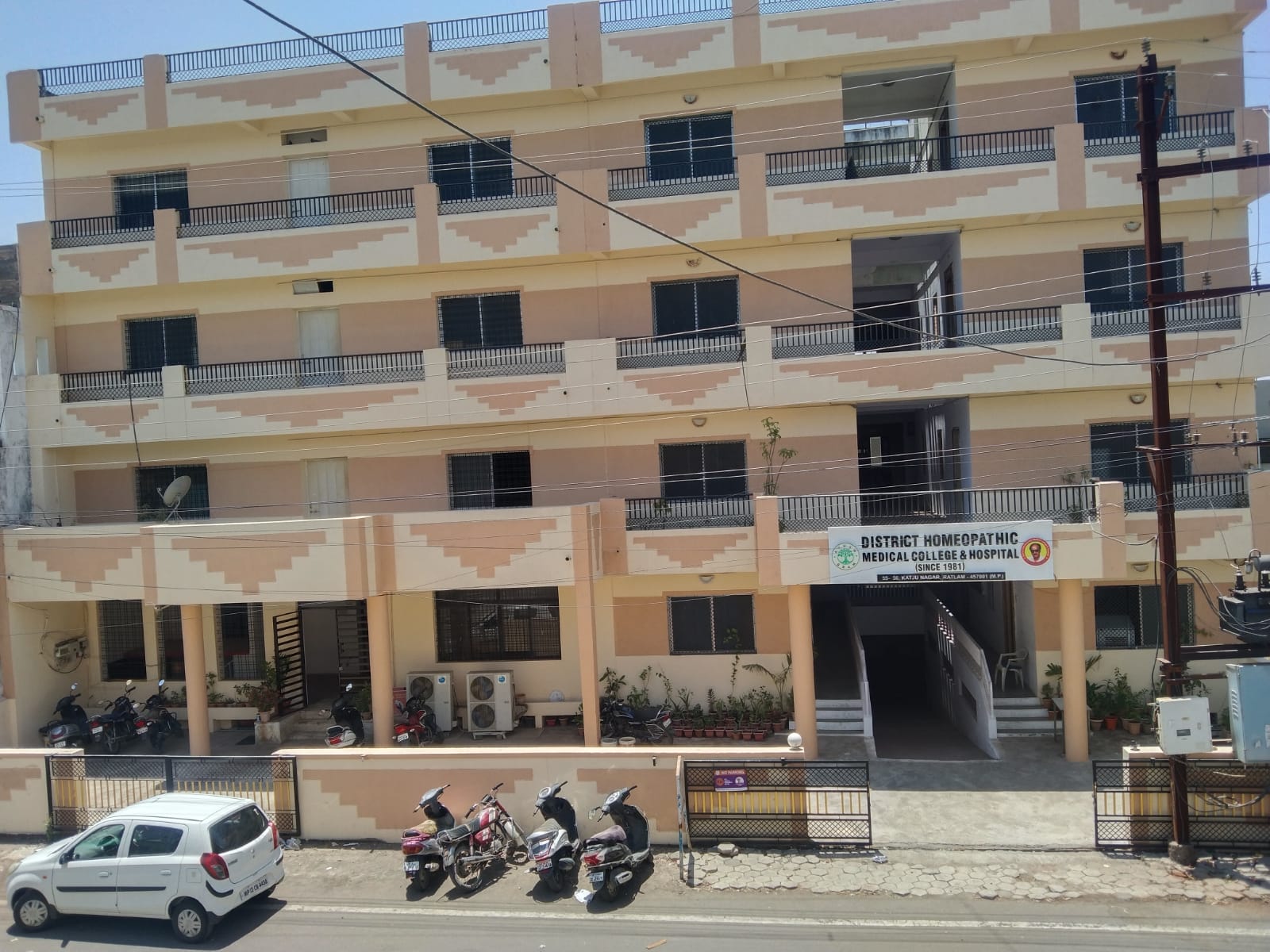Established in 1990, the District Homoeopathic Medical College & Hospital (DHMCH) in Ratlam, Madhya Pradesh stands as a beacon of homoeopathic education and healthcare. Affiliated with the Madhya Pradesh Medical Science University, Jabalpur, and approved by the National Commission for Homoeopathy (NCH), New Delhi, DHMCH has been instrumental in shaping proficient homoeopathic practitioners.
Historical Background
District Homoeopathic Medical College & Hospital was founded with the vision to provide quality homoeopathic education and healthcare services. Over the years, it has evolved into a premier institution, blending traditional homoeopathic principles with modern medical practices. The college’s commitment to excellence is reflected in its comprehensive curriculum and state-of-the-art facilities.
Academic Programs
The college offers both undergraduate and postgraduate programs in homoeopathy:
Bachelor of Homoeopathic Medicine and Surgery (BHMS)
- Duration: 5.5 years (including a one-year internship)
- Intake Capacity: 100 students per academic session
- Eligibility:
- Completion of 10+2 with a minimum of 50% aggregate in Physics, Chemistry, and Biology.
- Candidates must qualify for the NEET UG entrance exam conducted by NTA.
- Minimum age of 17 years at the time of admission or by December 31st of the admission year.
Doctor of Medicine (MD) in Homoeopathy
- Duration: 3 years
- Specializations: Various disciplines within homoeopathy
- Intake Capacity: 6 students per academic session
- Eligibility:
- BHMS degree with a minimum aggregate score of 60% from a recognized university.
- Candidates must qualify for the AIAPGET entrance exam conducted by NBE.
Admission Process
Admissions to DHMCH are based on entrance examinations:
- BHMS: Candidates must qualify for the NEET UG exam and participate in the Madhya Pradesh Ayush NEET Counselling conducted by the Directorate of Medical Education, Madhya Pradesh.
- MD (Hom.): Candidates must clear the AIAPGET exam and participate in the Madhya Pradesh AIAPGET Counselling.
The admission process is transparent, ensuring that only meritorious students secure seats in the programs offered.
Infrastructure and Facilities
DHMCH boasts a robust infrastructure to support both academic and extracurricular activities:
- Academic Facilities:
- Classrooms: Well-equipped with modern teaching aids.
- Laboratories: Advanced labs for practical training in subjects like Anatomy, Physiology, Pathology, and Pharmacy.
- Library: A vast collection of homoeopathic literature, journals, and research papers.
- Clinical Facilities:
- Hospital: An attached hospital with Outpatient (OPD) and Inpatient (IPD) departments, providing hands-on clinical experience.
- Specialized Units: ECG Unit, Panchkarma Unit, Operation Theatre (OT), and Physiotherapy Unit.
- Other Amenities:
- Hostels: Separate accommodations for male and female students with essential facilities.
- Cafeteria: Serving nutritious and hygienic food.
- Transportation: Bus services for students and staff.
- Recreational Facilities: Playground, indoor games, and a multipurpose hall for cultural events.
Faculty and Staff
The college prides itself on a team of experienced and dedicated faculty members:
- Professors: Experts in their respective fields, contributing to both teaching and research.
- Lecturers: Committed to imparting knowledge and guiding students through their academic journey.
- Support Staff: Ensuring the smooth functioning of administrative and clinical operations.
The faculty-student ratio is maintained to ensure personalized attention and mentorship.
Clinical Training and Hospital Services
Practical exposure is a cornerstone of medical education at DHMCH:
- Outpatient Department (OPD): Students interact with patients under supervision, honing their diagnostic and therapeutic skills.
- Inpatient Department (IPD): Management of admitted patients provides insights into chronic and acute case handling.
- Community Health Initiatives: Regular camps and outreach programs to serve the rural population, emphasizing the role of homoeopathy in public health.
These experiences prepare students for real-world challenges, fostering confidence and competence.
Research and Development
DHMCH encourages a culture of research:
- Research Cell: Facilitates and oversees research projects undertaken by faculty and students.
- Collaborations: Ties with research organizations and homoeopathic pharmaceutical companies for collaborative studies.
- Publications: Faculty and students regularly contribute to reputed journals, sharing their findings with the broader medical community.
This emphasis on research ensures that the institution remains at the forefront of advancements in homoeopathic medicine.
Student Life and Extracurricular Activities
Life at DHMCH extends beyond academics:
- Cultural Events: Annual festivals and celebrations fostering a sense of community and showcasing talents.
- Sports: Facilities and events promoting physical fitness and teamwork.
- **Workshops and Sem
